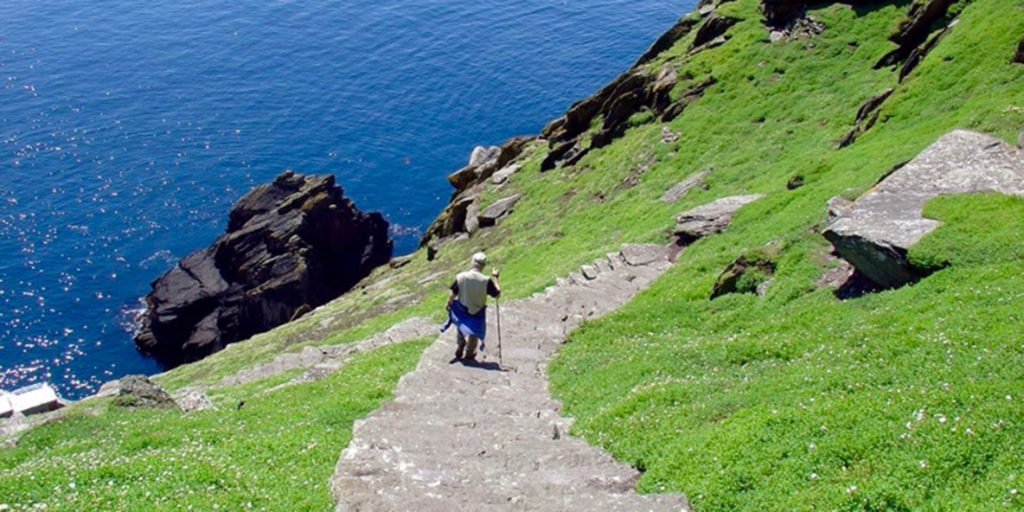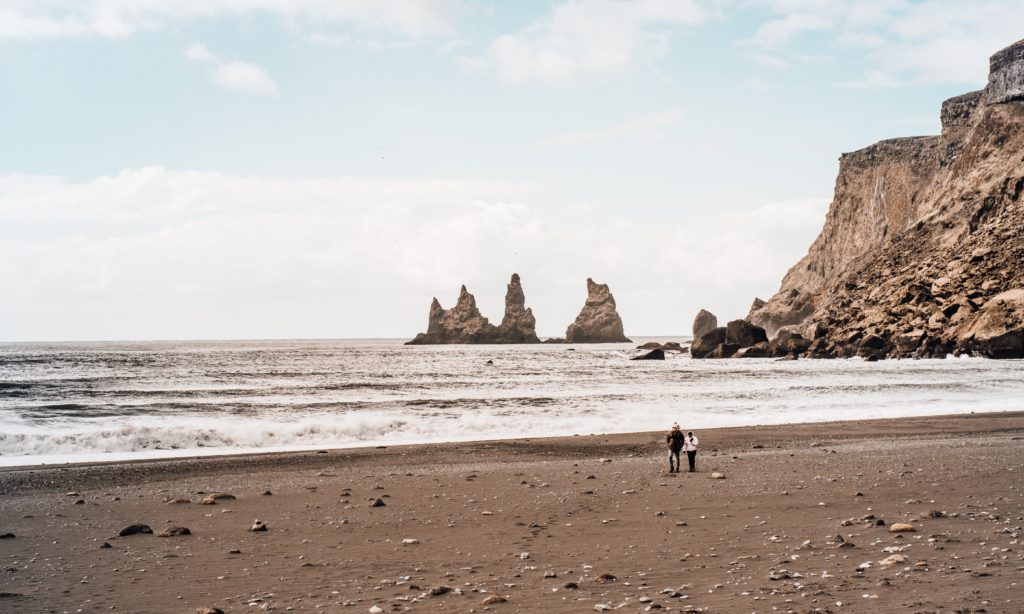I mentioned in our last eNewsletter that the liturgical seasons of the Christian year (the mapping of our worship year) serve not only to frame and describe themes and moods of New Testament narratives (assigned by the tradition) but the liturgical seasons also serve to help us reflect on our own narrative, our own story. I suggested that the season of Epiphany gives us opportunities to see again. Or see as if for the first time. And when our vision, our perception, changes we do too. And in turn, how we see the world. The 17th century Japanese haiku poet puts it this way: “All things change when we do.”
The last Sunday of the season of the Epiphany (and I will reflect on the story assigned for that day in Continuing the Conversation on our website) is March 3 (2019). What follows is Ash Wednesday. Ash Wednesday reminds us of our mortality, marking us with “dust” to signify our own end. Awareness of our mortality is the portal to Lent.
Penitence and Lent
Lent has traditionally been considered a penitential season. A penitent being one expressing deep sorrow and regret at having done something wrong. It builds on the Christian notion that “we are by nature sinful and unclean,” part of the catechism my husband and countless others had memorized before they were eight. (!) I don’t agree that we are by nature sinful and unclean, ontologically stained. We made up this idea. Perhaps a way to explain our sense, like Miss Clavel the nun in the Madeline children’s story who exclaimed in the middle of the night, that “Something is not quite right!” But to assign a “sinful and unclean nature” to this human apprehension and angst I think is a travesty. And what has followed are judgments about the redeemed and the unredeemed. Such judgments have been used by domination systems and tyrants in terrifying and destructive ways, as we all know. And all too many of us have internalized this message into our punitive superego where it has wrecked havoc on our own sense of self.
We are limited. That is no fault. We would do better if we accept our limitations – not to be mistaken for lack of agency — with humility rather than apologize for them. Perfection is not our goal. It is an abstraction, removed from human experience.
Lent and Mortality
Accepting our limitations, our mortality, recognizing there are choices to be made “integral to humanness,” (Denise Levertov) provides opportunity. I suggest the season of Lent is a time of such opportunity, a time when the question is called on the truth of our own story. A time when we are given an opportunity to be honest about how we live, what we believe and why, what we value, what we think is possible, whom or what we serve. Lent is the season in our lives when the question is called on our meaning and purpose. Or as Mary Oliver posits: “What are you going to do with your one wild and precious life?”
In thinking about Lent, I am reminded of Ernest Becker’s classic and important book The Denial of Death. (1974). And I suggest the denial of death and not our “sinful and unclean nature” is the obstacle we confront “in the season of Lent.”
Immortality Projects
A couple of ideas from Becker. He suggests that human beings engage in what he calls “immortality projects.” Or in my words, our temptation (and sometimes from illness) to become demigods. These immortality projects (I love that descriptor) are based on constructed strategies and belief systems that insist we are superior to the physical. These strategies presuppose a dualism between our “symbolic self” and our physical self. As I understand Becker, these immortality projects co-conspire with our denial of death. “Hero systems” are such immortality projects. And Becker places religion in this category. He insists they are the driving force for human conflict and aggression. Any given “hero system” will claim its own superiority. Sobering thoughts as we reflect on our own religious loyalties and persuasions.
Becker also suggests that if we were to come to terms with the reality of death it could bring about a better world.
Becker in his powerful way affirms what philosophers, sociologists, psychologists, anthropologists claim: Death is The Great Teacher. To deny Death is to ignore the possibilities of human meaning and purpose. We have but one life. It is wild. So much is beyond our control and comprehension. And life is precious. It is remarkable that we are here. We are to honor the privilege of existence knowing ours is limited. And do our part to assure that a next generation will have the privilege and opportunity as well. It may seem paradoxical but it is Death that helps us take our life seriously, not to squander it, and live for others yet to come.
Our season of Lent, is when we face the reality of Death and our own mortality and when “the question” is called.
The word Lent, incidentally, has an Old English root, len(c)ten, which means “spring season.” Time for new life. And let me say the obvious, it follows “winter.”
What Mortality Has to Teach Us
Poet Denise Levertov, suggests that we often let this cup pass when the question is called. “Aren’t there annunciations of one sort or another in most lives? Some unwillingly undertake great destinies, enact them in sullen pride, uncomprehending. More often those moments when roads of light and storm open from darkness in a man or woman, are turned away from in dread, in a wave of weakness, in despair and with relief. Ordinary lives continue. God does not smite them. But the gates close, the path vanishes.”
Lent is a time in our lives when we decide what is to be undertaken. Or refused.
“The question” will be called a number of times before our own death. Different gates, different paths will present themselves. But when the season comes to you, I urge you to enter it. Don’t refuse. Your willingness, your consent, to respond to the question will make all the difference in how you continue on the journey that is set before you.
- Have you had times in your life when meaning and purpose needed to be readdressed as if your life depended on it?
- Can we see Death as the Great Teacher, the ultimate bearer of the questions for life? Does this in any way mitigate “the sting of death”?
- What do you make of my suggestion that Lent is a season in our own lives?
I welcome your thoughts and experience.




I never saw as death being a marker. I always saw death being victory. I see the now death being important as the conclusion of earth time life. I would assume life to be continuous victories that we have a choice to rest in.
Kelly. My experience is we do not always have choice about what happens to us but how we respond is ours. That we may so love this world we will leave it well cared for other generations to experience. Thanks so much for responding.
My son, Chad, was murdered on January 22, 1997. It initiated a journey of soul-searching and a complete reexamination of my theology – a journey that continues and that I anticipate will never end. The journey had costs. For two years, I could not watch communion, a weekly occurrence in the Disciples of Christ. The violence alluded to in the Last Supper was too close to that in my own life. That first Lent was horrible. Dealing with your own death is far easier than dealing with the death of your child.
Marcus and all the participants in “Living the Questions” were a great help. I had the pleasure of attending his presentation at Christian Theological Seminary in Indianapolis. Most of his books are in my home – heavily underlined and filled with lots of margin notes..
So, here is where I am:
https://www.facebook.com/notes/douglas-c-sloan/reclaiming-exodus/10155906189211666/
Thank you for your powerful and personal response. Rereading your response is more important than anything I can say. Marcus work and his own understanding of the stunning finality of death and the return of another day, his profound trust in life and death accompanied him to his own threshold. And beyond. I will turn to your notes.